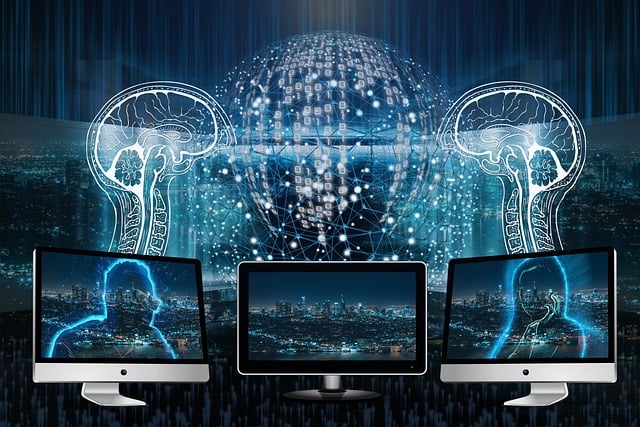In an age where the internet is intricately woven into the fabric of daily life, digital accessibility has made significant progress.
Researchers at Ohio State University are at the forefront of this effort, developing an artificial intelligence agent that is poised to transform the way we interact with the web.
This groundbreaking AI agent is designed to perform complex tasks on any website using simple language commands; This is an invention that could make the internet more accessible, especially for people with disabilities.
The Internet has evolved tremendously since its public inception three decades ago, evolving into a complex, dynamic entity.
While its breadth and complexity are indicative of technological progress, it has made navigation difficult for many users.
Recognizing this challenge, Yu Su, assistant professor of computer science and engineering at Ohio State and co-author of the study, emphasizes the importance of their work.
“It’s not easy for some people, especially those with disabilities, to navigate the internet,” Su said.
“We increasingly rely on the world of computers in our daily lives and work, but there are more and more barriers to this access, which to some extent widens inequality.”
The Intricacies of the Modern Web and the Rise of AI Web Agents

The Internet has undergone a remarkable transformation since its inception; It has evolved from a simple network of static pages to a large, complex and dynamic system.
While this evolution is a testament to human ingenuity and technological advancement, it has inadvertently created significant barriers to accessibility.
The complexity and number of steps required to perform tasks on modern websites can be daunting, especially for individuals with disabilities.
Navigating this in today’s internet-centric society has become a significant challenge.
To address this challenge, the development of artificial intelligence web agents, such as those pioneered by researchers at Ohio State University, offers a glimmer of hope.
These agents are designed to simplify the web browsing experience by executing complex tasks through simple language commands.
By doing this, they effectively reduce the layers of complexity that currently hinder accessibility on the web.
These agents work by mimicking human-like browsing behavior, using information from live websites.
They understand the layout and functionality of various websites using advanced language processing abilities.
This approach allows AI agents to autonomously perform a wide range of tasks, from simple navigation commands to more complex operations, making the digital world significantly more navigable for all users.
Mind2Web: The Leading Dataset for Public Web Agents

It was developed by the Ohio State University team. Mind2Web is the first dataset designed specifically for general-purpose web agents.
This dataset is revolutionary in its approach as it fully embraces the complex and dynamic nature of real-world websites and differs from previous efforts that often focused on simplified, simulated web environments.
Mind2Web’s primary role is to serve as a training ground for AI web agents, equipping them with the skills needed to navigate the complexities of various websites.
It is designed to offer a wide range of scenarios and challenges, mimicking the unpredictable and ever-evolving environment of the Internet.
The AI agent developed by Yu Su and his team receives training on Mind2Web, learning to generalize its capabilities to new, unseen websites.
This adaptability is crucial because it allows the agent to perform tasks across different web platforms with a high degree of accuracy and efficiency.
The versatility of the AI agent trained on Mind2Web is evident in the wide range of tasks it can perform. From booking one-way and round-trip international flights to following celebrity accounts on X (Twitter), the agent demonstrates exceptional competence and flexibility.
It can browse various websites to perform tasks like browsing comedy movies streaming on Netflix and even scheduling car knowledge tests at the DMV.
The complexity of these tasks is remarkable; for example, booking an international flight involves up to 14 different actions that showcase the agent’s ability to manage complex, multi-step processes.
Future Prospects and Ethical Considerations in Artificial Intelligence Development

The emergence of artificial intelligence web agents developed by Yu Su and his team marks a transformative era in web interaction.
These agents promise to revolutionize the way we browse and use the internet by simplifying complex online tasks, and increasing efficiency and productivity across a variety of industries.
However, this promising technology also raises ethical issues regarding possible misuse, especially in sensitive areas such as finance and personal data, especially to spread misinformation or exploit security vulnerabilities.
Yu Su acknowledges the dual nature of AI developments. While it offers significant potential to enhance human capabilities and creativity, it also risks the emergence of harmful practices with far-reaching societal impacts.
As developments such as ChatGPT demonstrate, this technological advancement requires a balanced approach that weighs the benefits against potential risks.
These ethical concerns must be addressed. As Su suggests, in addition to harnessing the potential of AI, we must ensure responsible use by developing robust ethical frameworks and guidelines for its deployment.
Rich in possibilities, the future of generalist web intermediaries requires careful navigation to ensure that the integration of AI into our digital lives is beneficial and fair.
Su’s work is not only a technological leap forward, but also a call for responsible use of AI, paving the way for a future where AI serves as a valuable ally in achieving a more accessible and equitable digital world.